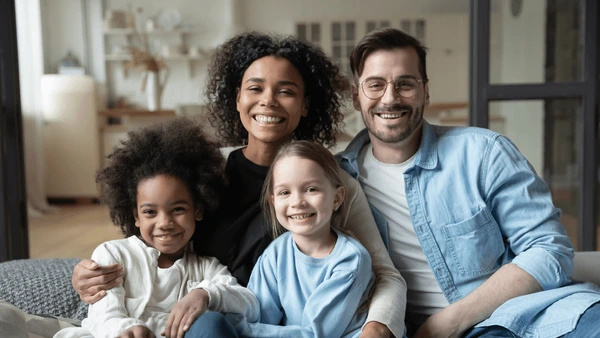Boosting Your LGBTQ+ Childs Confidence: A How-To Guide
Boosting your LGBTQ+ child’s confidence involves creating a safe space at home, promoting self-expression, providing positive role models, fostering open communication, addressing challenges like bullying, and celebrating achievements. Start by establishing a supportive environment, encouraging authentic self-expression, and introducing diverse role models. Keep communication open, tackle discrimination head-on, and celebrate every success. Your child’s confidence grows with your support, understanding, and empowerment.
Key Takeaways
- Encourage self-expression through supportive conversations and activities.
- Provide a safe space for authentic identity exploration.
- Celebrate achievements and affirm worth regularly.
- Connect with positive LGBTQ+ role models and communities.
- Foster resilience through coping strategies and emotional validation.
Building a Supportive Home Environment

Creating a consistently supportive home environment is crucial for boosting your LGBTQ+ child’s confidence. Your home should be a safe space where your child feels accepted and loved for who they are. Encouraging open communication and expressing unwavering support will help them thrive.
Additionally, consider getting involved in LGBTQ+ events like pride parades to show solidarity and foster a sense of community.
Furthermore, make certain that your child’s school is affirming and provides a safe space for LGBTQ+ students. Advocate for inclusive policies and support groups that can help your child feel supported outside of the home.
Encouraging Self-Expression and Authenticity
Encouraging your LGBTQ+ child to embrace their true self and express their identity authentically is essential for nurturing their confidence and self-esteem. Providing them with opportunities to explore creative outlets can be incredibly empowering.
Encourage your child to engage in activities that allow them to express themselves freely, whether it’s through art, music, writing, or any other form of creative expression.
Supporting your child’s personal style is another way to boost their confidence. Help them cultivate a wardrobe that makes them feel comfortable and confident in their skin. Allow them the freedom to experiment with different styles and find what resonates with them the most.
Providing Positive Role Models

When it comes to boosting your LGBTQ+ child’s confidence, positive role models play an essential role. Seeing diverse role models who share similar experiences can have a significant impact on your child’s self-esteem and sense of belonging.
Having representation in media and fostering supportive community connections can provide your child with the inspiration and support they need to navigate their identity with confidence.
Diverse Role Models Impact
Introducing your LGBTQ+ child to a diverse range of positive role models can greatly impact their confidence and sense of self-worth. By providing visibility and representation of individuals who share their identity, your child can feel a sense of acceptance and belonging.
Seeing successful and confident LGBTQ+ individuals in various fields can help your child understand that their identity is valid and that they can achieve their goals regardless of their sexual orientation or gender identity.
Positive role models can serve as a source of inspiration, showing your child that there are others like them who’ve overcome challenges and thrived. By exposing your child to diverse role models from different backgrounds, professions, and experiences, you can broaden their perspective and help them envision a future where they can be their authentic selves.
Encouraging your child to connect with these role models, whether through books, events, or online platforms, can further nurture their confidence and self-esteem.
Representation in Media
Including positive LGBTQ+ role models in the media can greatly impact your child’s confidence and self-esteem. Media visibility and representation of LGBTQ+ characters play an important role in shaping how your child sees themselves and their place in the world.
When your child sees individuals like themselves being portrayed positively in TV shows, movies, books, and other forms of media, it can help them feel accepted and valued.
Inclusion of LGBTQ+ characters in mainstream media shows your child that they aren’t alone and that there are people out there who share similar experiences and identities. Positive representation in media can provide your child with role models to look up to, inspiring them to embrace who they’re and feel proud of their identity.
Supportive Community Connections
To further empower your LGBTQ+ child and boost their confidence, connecting them with supportive community members who can serve as positive role models is key. Encouraging your child to participate in community events and engage with local resources can provide them with a sense of belonging and support. Attending pride parades or getting involved with LGBTQ+ organizations can introduce your child to a diverse range of individuals who can inspire and mentor them.
These connections can be invaluable in helping your child navigate their identity and build self-assurance. Positive role models within the LGBTQ+ community can offer guidance, empathy, and understanding, showing your child that they aren’t alone in their journey.
Fostering Open Communication Channels

You can start fostering open communication channels by having supportive family conversations where your LGBTQ+ child feels heard and accepted.
Encourage them to express their emotions openly, creating a safe space for them to share their thoughts and feelings.
Building trust through active listening will strengthen your bond and help them feel supported in their journey.
Supportive Family Conversations
Encouraging open and supportive family conversations can be an essential step in fostering a strong bond with your LGBTQ+ child. Affirming identities and creating safe spaces within your family dynamic is vital for your child’s well-being. It’s important to listen actively and without judgment when your child chooses to share their thoughts, feelings, or experiences.
To create a supportive environment, consider initiating conversations about LGBTQ+ topics, asking questions, and showing genuine interest in understanding your child’s perspective. By actively participating in these discussions, you demonstrate your commitment to supporting and accepting your child for who they are.
Remember that fostering open communication channels is a two-way street. Encourage your child to express themselves freely, knowing that their thoughts and emotions are valued. By creating a safe space where they feel heard and respected, you strengthen your relationship and build their confidence to navigate the world authentically.
Your unwavering support will help your LGBTQ+ child feel more secure and accepted within the family unit.
Encouraging Expressing Emotions
Creating a safe and open environment for your LGBTQ+ child to express their emotions is essential for their overall well-being. By encouraging emotional validation, you show your child that their feelings are valid and important. This fosters a sense of self-esteem and self-acceptance, vital for their confidence building journey.
Listen actively when your child wants to talk about their emotions. Let them know you’re there to support them no matter what they’re feeling. Encourage them to express themselves freely, without fear of judgment.
Help your child recognize and label their emotions. This can aid in developing their emotional intelligence and understanding themselves better. Additionally, provide positive reinforcement when they express their feelings openly.
Creating a safe space for emotional expression not only strengthens your bond with your child but also helps them navigate their identity with confidence and self-assurance. Your support in this aspect plays a significant role in their overall well-being.
Building Trust Through Listening
To deepen your LGBTQ+ child’s confidence, fostering open communication channels through attentive listening is crucial. Active listening involves more than just hearing words; it requires focus, empathy, and understanding. When your child speaks, make an effort to truly listen without interrupting or judging. This shows that you value their thoughts and feelings, building trust within your relationship.
Trust building through listening also involves non-verbal cues. Maintain eye contact, nod in acknowledgment, and provide verbal affirmations to show that you’re engaged in the conversation. By creating a safe space for your child to express themselves openly, you encourage honesty and strengthen your bond.
Addressing Bullying and Discrimination

Dealing with bullying and discrimination can be a challenging but essential aspect of supporting your LGBTQ+ child’s confidence. Promoting acceptance within your family and community is pivotal. Encourage open conversations about diversity and respect for all individuals. Empower your child by helping them understand that being true to themselves is a strength, not a weakness. Addressing challenges head-on is key.
Teach your child to stand up for themselves assertively and seek help when needed.
Building resilience is indispensable in facing discrimination. Validate your child’s feelings and experiences, letting them know they aren’t alone. Encourage them to find supportive communities, whether online or in-person, where they can connect with others who understand their struggles. Help your child develop coping strategies, such as mindfulness or engaging in activities they enjoy.
Stay informed about LGBTQ+ rights and resources to provide accurate information and guidance. By fostering a safe and supportive environment, you can help your child navigate bullying and discrimination with confidence and strength.
Celebrating Achievements and Milestones
Acknowledging and celebrating your LGBTQ+ child’s achievements and milestones is essential in nurturing their self-esteem and confidence. Pride parades are moments of empowerment and visibility for the LGBTQ+ community. Attending these events with your child can be a vital way to show support and celebrate their identity.
Additionally, recognizing their school achievements, whether it’s acing a test or excelling in extracurricular activities, is pivotal in boosting their confidence.
Family celebrations play a significant role in affirming your child’s worth. Whether it’s a small gathering or a big party, commemorating their milestones fosters a sense of belonging and acceptance. Encourage your child’s personal growth by acknowledging their progress, no matter how small.
Celebrate their courage, resilience, and authenticity.
Frequently Asked Questions
How Can I Help My Lgbtq+ Child Navigate Dating and Relationships?
Help your LGBTQ+ child navigate dating and relationships by discussing healthy boundaries and communication strategies. Encourage open dialogue, respect their autonomy, and provide support as they explore their identity and connections with others.
What Resources Can I Access to Educate Myself on Lgbtq+ Issues?
To educate yourself on LGBTQ+ issues, explore online workshops, attend seminars, join community groups, and utilize support hotlines. These resources provide valuable information, guidance, and a supportive network to help you navigate and understand LGBTQ+ topics.
Should I Disclose My Child’s Lgbtq+ Status to Extended Family?
You should carefully consider parental boundaries and family dynamics before disclosing your child’s LGBTQ+ status to extended family. Respect your child’s privacy and well-being while fostering open communication within your family unit.
How Can I Support My Child if They Are Questioning Their Gender Identity?
When your child is exploring their gender identity, listen without judgment and offer unwavering support. Encourage their journey of self-discovery, affirm their identity, and provide resources for guidance. Your love and acceptance are paramount.
What Are Some Ways to Address Microaggressions Towards My Child?
When addressing microaggressions towards your child, you can build resilience by affirming their worth, educating others, and seeking support. Promote self-care by encouraging boundaries, self-compassion, and engaging in activities that bring them joy and peace.
Conclusion
In summary, by creating a supportive and loving environment, encouraging self-expression, providing positive role models, fostering open communication, addressing bullying, and celebrating achievements, you can boost your LGBTQ+ child’s confidence.
Remember, your love and acceptance are essential in helping them navigate the challenges they may face. Keep showing them that they’re valued and supported, and watch as their confidence grows stronger each day.
You’ve got this!

Hey there! 👋 I’m a proud mom and passionate writer, sharing my parenting journey. 📝 Join me as I navigate the ups and downs of motherhood, offering tips, advice, and a sprinkle of humor along the way. 🌟







